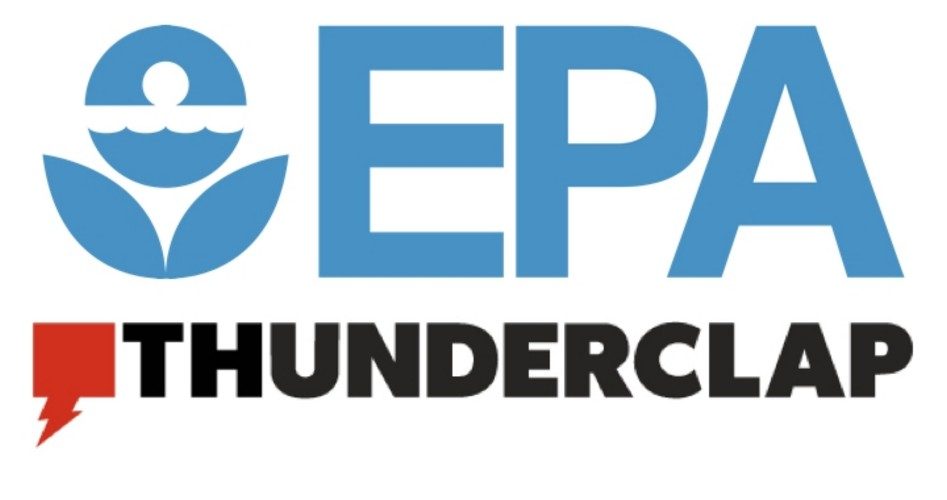
Government watchdog Judicial Watch has uncovered more evidence that President Obama’s Environmental Protection Agency was acting in violation of the law by using social media to promote the agency’s controversial Waters of the United States (WOTUS) rule.
As observed by the Daily Caller, federal law prohibits agencies from engaging in propaganda and also “forbids agencies from using federal resources to conduct grassroots campaigns that prod U.S. citizens into browbeating lawmakers to act on pending legislation.”
Judicial Watch filed its Freedom of Information Act lawsuit against the EPA after a December 2015 Government Accountability Office (GAO) report determined that the EPA’s use of the Thunderclap “crowdspeaking” platform to boost support for WOTUS did constitute “covert propaganda” in violation of federal law. According to that GAO report, the EPA reached nearly two million social media users with Thunderclap:
The Environmental Protection Agency (EPA) violated publicity or propaganda and anti-lobbying provisions contained in appropriations acts with its use of certain social media platforms in association with its “Waters of the United States” (WOTUS) rulemaking in fiscal years 2014 and 2015. Specifically, EPA violated the publicity or propaganda prohibition though its use of a platform known as Thunderclap that allows a single message to be shared across multiple Facebook, Twitter, and Tumblr accounts at the same time. EPA engaged in covert propaganda when the agency did not identify EPA’s role as the creator of the Thunderclap message to the target audience.
Through its lawsuit, Judicial Watch obtained 900 pages of documents that revealed the agency used a variety of platforms, including Thunderclap, Facebook, and Twitter, to generate support for its environmental policies.
WOTUS was an unpopular rule among conservatives who viewed it as an Obama-era power grab as it expanded “navigable waters” to include small ponds and creeks. Thirty-two states filed suit against the EPA and the U.S. Army Corps of Engineers to overturn the rule.
“The Obama EPA knowingly did an end run around federal law to push another Obama environmental power grab,” Judicial Watch President Tom Fitton said in a press statement Monday. “These documents show how these Obama-era bureaucrats seem to be more like social activists than public employees.”
E-mails obtained by Judicial Watch through FOIA show that former EPA Director of Web Communications Jessica Orquina acknowledged the agency’s use of social media accounts to reach the agency’s support goal, but wanted to cover it up.
“I don’t want it to look like EPA used our own social media accounts to reach our support goal,” Orquina wrote in an e-mail in 2014 to Karen Wirth, an EPA team leader in the Office of Ground Water and Drinking Water.
The campaign to use social media to generate support for WOTUS seemed to begin with Travis Loop, the EPA’s director of communications for water, who wrote in a September 9, 2014 e-mail to Gary Belan, senior director for the organization American Rivers, that the agency would begin using the then-new Thunderclap platform to “provide a way for people to show their support for clean water and the agency’s proposal to protect it.”
Loop added, “If 500 or more people sign up to participate, the message will be posted on everyone’s walls and feeds at the same time. But if fewer than 500 sign up, nothing happens. So, it is important to both sign up and encourage others to do so,” he added.
Loop reached out to Orquina one day later to ask how to involve other agencies.
“What’s the best way to get the other agencies to sign up for the Thunderclap and promote on social media? Interior, USGS, NOAA, etc. I was going to tweet at them to join the Thunderclap, but thought maybe you had thoughts on that and maybe a more direct line,” he asked.
Further controversy surrounding the WOTUS included evidence that the EPA colluded with environmentalist groups to fast-track and finalize the rule.
The Trump administration took action earlier this year to repeal the WOTUS rule.
“We are taking significant action to return power to the states and provide regulatory certainty to our nation’s farmers and businesses,” EPA Administrator Scott Pruitt said in a June statement. “This is the first step in the two-step process to redefine ‘waters of the U.S.’ and we are committed to moving through this re-evaluation to quickly provide regulatory certainty, in a way that is thoughtful, transparent, and collaborative with other agencies and the public.”



